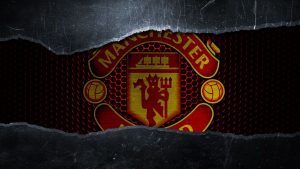 The 2-1 pre season defeat in Kansas City by the Wizards this morning was not the first suffered in America by Manchester United. The club has been visiting the country for decades while a number of former stars have either played there for a few years towards the end of their careers or started a new life on the other side of the world. One of those who may be remembered is Gordon Hill who was brought to Old Trafford by former manager Tommy Docherty in November 1975 for £70,000 from Millwall at the age of 21.
The 2-1 pre season defeat in Kansas City by the Wizards this morning was not the first suffered in America by Manchester United. The club has been visiting the country for decades while a number of former stars have either played there for a few years towards the end of their careers or started a new life on the other side of the world. One of those who may be remembered is Gordon Hill who was brought to Old Trafford by former manager Tommy Docherty in November 1975 for £70,000 from Millwall at the age of 21.
Hill only stayed at Old Trafford for three years making a total of 101 appearances including the 2-1 FA Cup Final defeat of Liverpool in 1977. He also had the distinction of representing England as an amateur, youth, under 23, England B and six full caps between 1976 and 1977. Hill’s April 1st game against Arsenal at Highbury in 1978 proved to be his last in the United colours after newly appointed manager Dave Sexton sold him to Derby County for a fee of £250,000.
After completing a couple of short stints at County and Queens Park Rangers, Hill moved to America to play for several clubs. Now settled in McKinney, Texas, the former flying winger found time to tell Inside United about his coaching school called what else, United FC.
You made your move to America in 1981, did fans recognise you as an ex-Red? – Oh definitely. The football world out here knew exactly who I was. I came out in 1976 with England for the Bicentennial Cup celebrating the 200th anniversary since adopting the Declaration of Independence and I always remember it because of the players who turned out for Team America made up of players in the American league.
They had Pele and Bobby Moore and we beat them 3-1. Before that we played Italy at the Yankee Stadium and beat them 3-2 in front of 40,000 screaming New Yorkers. Ray Wilkins and I made our debuts and it was fun. The Bicentennial showed a lot of Americans what the game was really about and I think people knew me from that.
How did you find the standard? – I found it fairly easy. It wasn’t a stroll in the park but it allowed you to express yourself more. You still had to work hard because the American players are tough and fit. I went to Montreal Manic in 1981, which wasn’t too long after Pele and Franz Beckenbauer had been with New York Cosmos and Johan Cruyff was at Washington Diplomats, and all these players were producing the goods.
The fans were given entertainment of the highest order, and 60,000 to 70,000 watched every week. They were seeing players who could express themselves and were pioneering football in North America, supporters would say this week we have Cruyff in town and the week after it would be Beckenbauer.
What made you start coaching in America? – I saw there was a niche in the market. Quality was needed, the game was played a lot from theory books where somebody had played as a kid, come through and then started to coach. But then the Europeans and South Americans began to settle down here and they were a bit more serious about the game and started to create a better coaching environment. It has been a slow process and it has taken a long time but today we have the MLS which is trying hard to be a top league.
Your coaching school is called United FC and it boasts a badge similar to United’s crest – Yeah, it’s all about United. If a player comes along who is good enough, he certainly isn’t going to Liverpool. But there are a lot of clubs here who call themselves Chelsea and Liverpool but they only have a link because they sell kits and uniforms. I have the real link, I have the history and the club in my system. I love wearing the United stuff when I’m coaching, people ask “Are you affiliated to the club?” And I say “I am everything to do with the club.” And if I have someone who is decent the first thing I do is give United a call.
You were an attacking player – do you focus on that part of the game at your school? – Yes I do. You need to express yourself. We contain things too much in England. We clone players, each one has to follow the rules. Centres of excellence and academies are looking at foreign players who can do something special, and we have to encourage our next generation of young players to do just that and not stifle it.
Do you think America can produce any world-class players in the future? – I think so. I have a five year old who can do stuff that scares me. I see his ability and just think, ‘Wow!’ Maybe 20 years ago you wouldn’t have seen that. American soccer needs to get its own football culture and playing style that takes the best of what Europe and South America have to offer.
Do you have any memories of Gordon Hill that can be shared?




